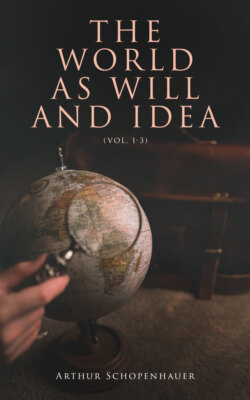Читать книгу The World as Will and Idea (Vol. 1-3) - Arthur Schopenhauer - Страница 22
На сайте Литреса книга снята с продажи.
ОглавлениеThe pleasure we receive from all beauty, the consolation which art affords, the enthusiasm of the artist, which enables him to forget the cares of life—the latter an advantage of the man of genius over other men, which alone repays him for the suffering that increases in proportion to the clearness of consciousness, and for the desert loneliness among men of a different race—all this rests on the fact that the in-itself of life, the will, existence itself, is, as we shall see farther on, a constant sorrow, partly miserable, partly terrible; while, on the contrary, as idea alone, purely contemplated, or copied by art, free from pain, it presents to us a drama full of significance. This purely knowable side of the world, and the copy of it in any art, is the element of the artist. He is chained to the contemplation of the play, the objectification of will; he remains beside it, does not get tired of contemplating it and representing it in copies; and meanwhile he bears himself the cost of the production of that play, i.e., he himself is the will which objectifies itself, and remains in constant suffering. That pure, true, and deep knowledge of the inner nature of the world becomes now for him an end in itself: he stops there. Therefore it does not become to him a quieter of the will, as, we shall see in the next book, it does in the case of the saint who has attained to resignation; it does not deliver him for ever from life, but only at moments, and is therefore not for him a path out of life, but only an occasional consolation in it, till his power, increased by this contemplation and at last tired of the play, lays hold on the real. The St. Cecilia of Raphael may be regarded as a representation of this transition. To the real, then, we now turn in the following book.
